WIBTA if I record the audio of my neighbours having s*x and play it back to them?
Living next to neighbors who shatter the silence of the night with relentless noise, she endures the invasion of her peace and personal space. Despite her polite requests for quiet, their disregard deepens her frustration, turning what should be restful nights into a torment that even taints her own intimate moments. The relentless loudness is not just an annoyance—it’s a violation of her sanctuary.
In the face of their blatant disrespect, she contemplates a bold act of retaliation, wielding their own intrusive behavior against them. Her plan to record and replay their disruptive conduct is a desperate bid for justice, a way to reclaim control in a situation where kindness has been met with scorn. This is a story of quiet endurance pushing to its breaking point, where the line between patience and retribution blurs.

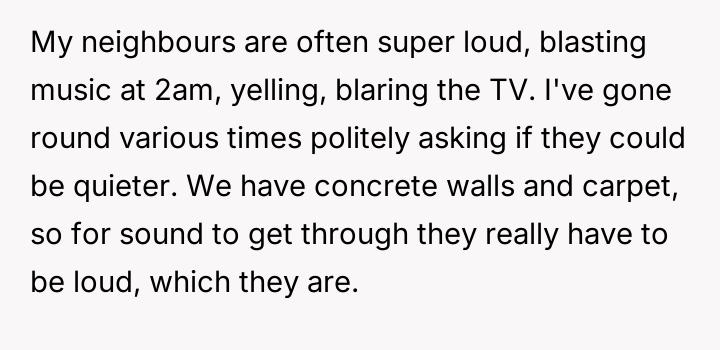



Subscribe to Our Newsletter
As renowned relationship expert Dr. Terri Orbuch explains, “When people feel their needs are not being met, they may resort to destructive communication patterns rather than constructive ones.” The poster's current situation illustrates a common breakdown in neighborly relations where initial polite requests have failed, leading to feelings of powerlessness and victimization. The neighbors' behavior—blasting loud music and engaging in loud sexual activity late at night—demonstrates a profound lack of consideration and respect for the shared living space. The poster’s perception that they are being targeted because they are perceived as 'mild-mannered' suggests an imbalance of perceived power. The proposed action—recording intimate moments for playback as revenge—is a severe escalation that shifts the conflict from a noise complaint to potential harassment or invasion of privacy, regardless of local legality. While the poster’s frustration is entirely valid given the continuous, extreme noise disruption (which is affecting their own intimacy), retaliatory measures that involve surveillance or invasion of privacy are inappropriate and likely to backfire legally or escalate the dispute dangerously. A more effective approach involves documenting the noise incidents (dates, times, types of noise) and pursuing official channels, such as contacting the landlord, building management, or local non-emergency police lines for noise violations. This maintains the high ground and focuses on enforcing community standards rather than engaging in personal retribution.
HERE’S HOW REDDIT BLEW UP AFTER HEARING THIS – PEOPLE COULDN’T BELIEVE IT.:
The community had thoughts — lots of them. From tough love to thoughtful advice, the comment section didn’t disappoint.
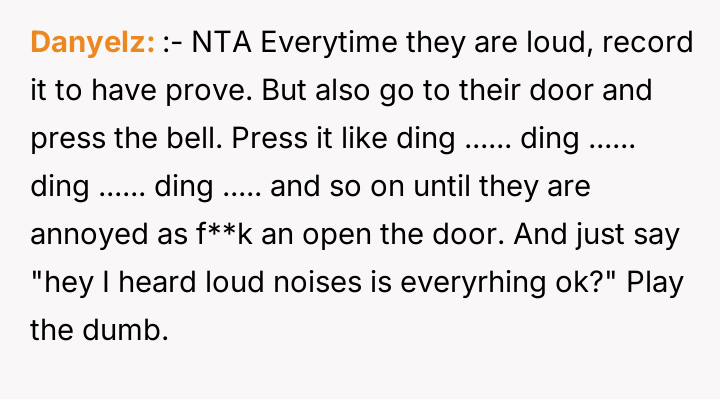





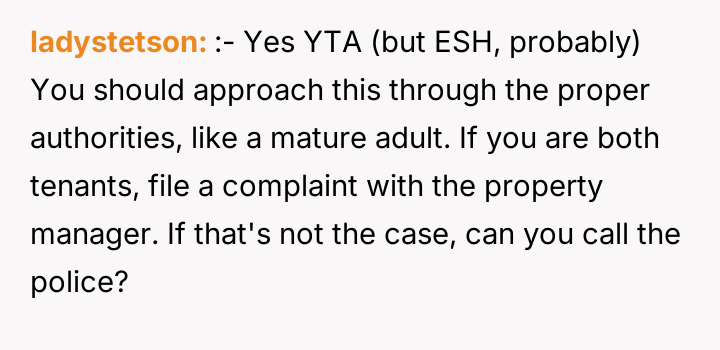
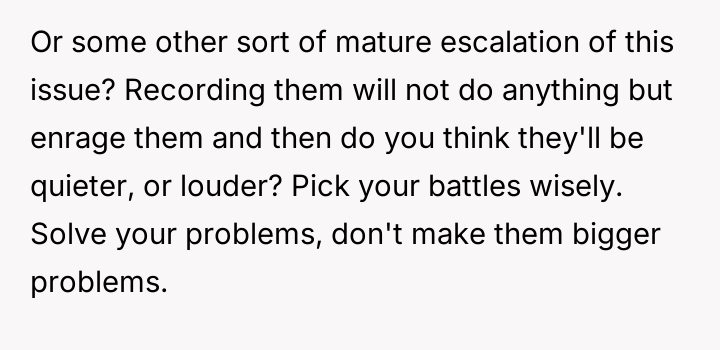
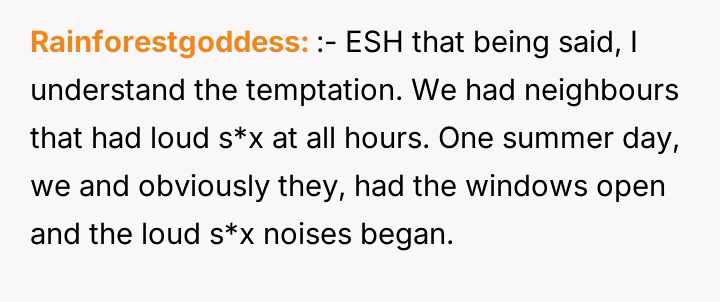



The original poster is experiencing significant distress due to their neighbors' excessive noise, leading to a desire for retaliation based on feelings of being disrespected and taken advantage of. The central conflict lies between the poster's initial, polite attempts to resolve the issue and their current consideration of highly invasive, retaliatory actions against the neighbors.
Is the poster justified in considering recording intimate sounds for the purpose of petty revenge, or does this proposed action cross a critical ethical boundary, making them responsible for the resulting escalation? The debate hinges on whether the neighbors' extreme inconsideration nullifies the poster's obligation to use non-invasive conflict resolution methods.